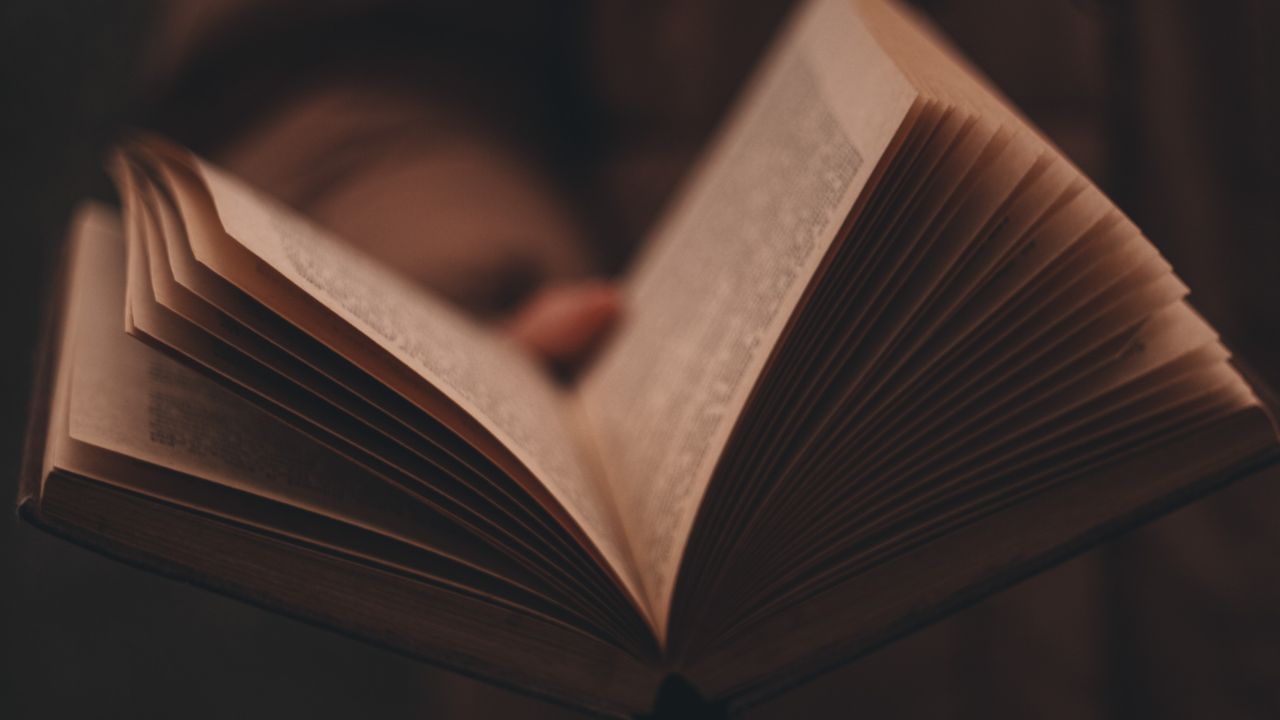- The Past in Poetry: A Reservoir of Memories
- The Present in Poetry: A Canvas of Immediate Reality
- The Future in Poetry: A Gateway to Hope and Uncertainty
- Conclusion
- Suggested Poems to Read
- Keywords:
- Key Takeaways:
- You Might Still Be Wondering about…
- How does poetry capture the essence of time and its impact on human experiences?
- Can the interpretation of the past change over time? How does this affect our present and future?
- How does the present moment contribute to our overall well-being and personal growth?
- In what ways does poetry offer a glimpse into the uncertainties and possibilities of the future?
- How does poetry connect us to collective human experiences and emotions across different time periods?
- Can poetry help us find meaning and purpose in the passage of time?
- How does poetry challenge our perception of time as linear and constant?
- What role does nostalgia play in poetry, and how does it influence our relationship with the past?
- How can poetry inspire us to embrace the present moment and find joy in everyday experiences?
- In what ways does poetry help us confront our mortality and contemplate the passage of time?
- Common Misconceptions:
- Poetry is irrelevant in today’s fast-paced world.
- Assuming that poetry solely focuses on the past.
- The future in poetry is always portrayed as optimistic and hopeful.
- Poetry is inaccessible and difficult to understand.
- The present moment is trivial and unworthy of reflection.
- Assuming that poetry is limited to personal experiences and emotions.
- Poetry is only relevant to those who are well-versed in literary analysis.
- Poetry lacks practical value or real-world application.
- Poetry is disconnected from contemporary issues and concerns.
- Assuming that all poetry follows a linear narrative structure.
Time, in its multifaceted existence, has been a constant source of inspiration and contemplation in the realm of literature. Poets, in particular, have explored the nuances of time—their reflections spanning across the past, present, and future—crafting verses that transcend the ages. This exploration of time serves as a mirror, reflecting our fears, hopes, joys, and sorrows, and as a lens, focusing on the human condition against the backdrop of temporality.
The Past in Poetry: A Reservoir of Memories
The past, with its power to invoke nostalgia, regret, and lessons, has been a significant theme in poetry. Poets often delve into their personal histories, cultural heritage, or historical events to weave narratives that resonate with readers. These recollections serve as a repository of shared human experiences, eliciting a range of emotions.
For instance, consider Robert Frost’s “The Road Not Taken,” where he reflects on past choices and their lasting implications. The path he didn’t take symbolizes opportunities missed, decisions regretted, or the unavoidable “what if” questions that haunt us. Similarly, Seamus Heaney, in “Digging,” delves into his familial past, reflecting on his lineage of manual laborers and his deviation into the world of writing.
By reminiscing on the past, poets invite us to reflect on our own histories, offering comfort in shared experiences or stirring emotions that lie dormant. They remind us that while the past is immutable, our understanding and interpretation of it can shape our present and future.
The Present in Poetry: A Canvas of Immediate Reality
While the past provides a wellspring of memories, the present offers a canvas for immediate experiences and emotions. The present moment, with its raw and unfiltered reality, often serves as a source of poetic inspiration.
Consider Emily Dickinson’s “I Dwell in Possibility,” where she revels in the possibilities of the present moment, especially in her role as a poet. Similarly, William Carlos Williams, in “The Red Wheelbarrow,” celebrates the beauty of a seemingly mundane moment, reminding us to find joy in the simplicity of the present.
Poetry grounded in the present challenges us to step away from the past’s shadow and the future’s allure. It encourages us to embrace the present—its beauty, its imperfections, its lessons—and to find joy, wisdom, and peace within it.
The Future in Poetry: A Gateway to Hope and Uncertainty
In the realm of poetry, the future stands as a gateway to both hope and uncertainty. It embodies the human aspirations for better days and the anxiety of the unknown.
Percy Bysshe Shelley, in his poem “Ode to the West Wind,” looks towards the future as a beacon of new beginnings and possibilities, using the west wind as a symbol of change and rebirth. On the other hand, W.H. Auden, in “As I Walked Out One Evening,” warns us about the passage of time and the inevitability of aging and death, offering a more somber reflection on the future.
These reflections on the future serve as reminders of our collective aspirations and uncertainties. They allow us to confront our fears, nurture our hopes, and realize that the future—despite its unpredictability—is a fundamental part of the human journey.
Conclusion
Time, with its threefold existence in the past, present, and future, remains a profound theme in poetry. It serves as a narrative thread connecting shared human experiences, emotions, and thoughts. By reflecting on time, poets provide us with a deeper understanding of ourselves and our place in the grand tapestry of existence. As readers, we are invited to embark on this timeless journey, contemplating our pasts, embracing our present, and looking towards our future—finding solace, wisdom, and companionship in the beautifully crafted verses.
Suggested Poems to Read
- “The Love Song of J. Alfred Prufrock” by T.S. Eliot: This poem explores the inner thoughts and reflections of the protagonist, Prufrock, as he contemplates the passage of time, the regrets of the past, and the uncertainties of the future. It beautifully captures the anxieties and introspections associated with the human experience of time.
- “Ode to a Nightingale” by John Keats: In this poem, Keats reflects on the fleeting nature of human existence and finds solace and escape in the timeless song of a nightingale. It delves into the themes of mortality, the desire for transcendence, and the beauty of the present moment.
- “When I Have Fears That I May Cease to Be” by John Keats: Keats contemplates the brevity of life and the fear of unfulfilled ambitions in this sonnet. It explores the tension between the desire for immortality through artistic creation and the acceptance of mortality, resonating with the themes of past, present, and future.
- “The Waste Land” by T.S. Eliot: This renowned modernist poem is a complex exploration of fragmented narratives, cultural references, and historical allusions. It reflects on the disillusionment and despair of post-World War I society, touching upon themes of the past, present, and the uncertain future.
- “Crossing the Bar” by Alfred, Lord Tennyson: Tennyson’s poem presents a contemplation of death as a transition from life to the “other side.” It metaphorically captures the idea of crossing a bar at sea, symbolizing the passage from the known present into the unknown future.
- “If I Can Stop One Heart from Breaking” by Emily Dickinson: In this poem, Dickinson expresses her desire to make a positive impact on others’ lives. It reflects the power of the present moment and the significance of human connections, emphasizing the importance of compassion and empathy.
- “To His Coy Mistress” by Andrew Marvell: Marvell’s poem is a passionate plea to seize the present moment and embrace love and desire. It portrays the urgency of time and the fleeting nature of youth, reminding us to make the most of the opportunities before us.
- “Preludes” by T.S. Eliot: “Preludes” captures the mundane and often overlooked moments of urban life, portraying the monotony and decay of the present. It serves as a reflection on the disillusionment of modernity and the search for meaning amidst the passage of time.
- “Ulysses” by Alfred, Lord Tennyson: Tennyson’s poem presents the mythical figure of Ulysses (Odysseus) reflecting on his past adventures and expressing his desire for new experiences and challenges. It speaks to the restless human spirit, the pursuit of purpose, and the desire to leave a lasting legacy.
- “Aubade” by Philip Larkin: Larkin’s poem is a contemplation of the fear and inevitability of death. It explores the anxieties associated with the passage of time, the dread of the unknown future, and the appreciation of the present moment in the face of mortality.
These poems offer diverse perspectives on the themes of time, past, present, and future, and showcase the beauty and depth of poetic reflections on the human condition.
Keywords:
- Time: The indefinite continued progress of existence and events in the past, present, and future, regarded as a whole.
- Reflection: The act of contemplating or thinking deeply about something, often resulting in introspection or self-examination.
- Past: The period of time that has already happened; events, experiences, or circumstances that occurred before the present moment.
- Present: The current moment or time, encompassing the immediate experiences, emotions, and realities.
- Future: The period of time that is yet to come; events, possibilities, and uncertainties that lie ahead.
- Poetry: Literary art form characterized by rhythmic and imaginative language, often expressing emotions, ideas, or experiences in a condensed and heightened manner.
- Nostalgia: A sentimental longing or wistful affection for the past, typically associated with happy memories or a sense of familiarity.
- Regret: A feeling of sadness, remorse, or disappointment over past actions, decisions, or missed opportunities.
- Hope: A feeling of optimism, expectation, or desire for a certain outcome or future state.
- Uncertainty: The state of being unsure, unpredictable, or having limited knowledge about future events or outcomes.
Key Takeaways:
- Poetry explores the past, present, and future, providing reflections that resonate with readers.
- The past in poetry serves as a repository of memories and shared human experiences.
- The present moment offers inspiration for poetry, emphasizing the beauty and significance of immediate reality.
- The future in poetry embodies both hope and uncertainty, reflecting human aspirations and fears.
- Poets invite readers to contemplate their own histories and find meaning in the interplay of time.
- The past can shape the present and future through interpretation and understanding.
- Embracing the present moment allows for joy, wisdom, and peace in its simplicity.
- The future represents new beginnings and possibilities, as well as the passage of time and mortality.
- Poetry provides solace, wisdom, and companionship through its exploration of time.
- Time serves as a narrative thread, connecting human experiences and emotions.
You Might Still Be Wondering about…
How does poetry capture the essence of time and its impact on human experiences?
Poetry uses language and imagery to evoke emotions and thoughts related to the past, present, and future, offering a multidimensional exploration of time’s influence on our lives.
Can the interpretation of the past change over time? How does this affect our present and future?
Yes, the interpretation of the past can evolve as our perspectives, knowledge, and experiences change. This can influence our present actions and decisions and shape our future aspirations.
How does the present moment contribute to our overall well-being and personal growth?
The present moment provides an opportunity for self-reflection, mindfulness, and embracing the beauty and lessons of immediate reality. It allows for personal growth, self-awareness, and finding joy in the simple things.
In what ways does poetry offer a glimpse into the uncertainties and possibilities of the future?
Poetry explores the human aspirations, hopes, fears, and uncertainties associated with the future. It encourages us to confront the unknown, reflect on our desires, and find meaning amidst the unpredictable nature of time.
How does poetry connect us to collective human experiences and emotions across different time periods?
Through shared themes, emotions, and experiences, poetry creates a bridge between different individuals, cultures, and historical contexts. It reminds us of our shared humanity and the universal aspects of the human condition.
Can poetry help us find meaning and purpose in the passage of time?
Poetry can provide solace, wisdom, and companionship as we navigate the complexities of time. It offers perspectives and insights that can help us find meaning, purpose, and a sense of continuity in our lives.
How does poetry challenge our perception of time as linear and constant?
Poetry often plays with time through nonlinear narratives, shifts in perspective, and the compression or expansion of moments. It can disrupt our conventional understanding of time and invite us to see it in a more nuanced and imaginative way.
What role does nostalgia play in poetry, and how does it influence our relationship with the past?
Nostalgia in poetry creates a sense of longing, often evoking sentimental or bittersweet emotions associated with the past. It allows us to reflect on our memories, cultural heritage, and personal growth, shaping our connection to the past.
How can poetry inspire us to embrace the present moment and find joy in everyday experiences?
By capturing the beauty and significance of seemingly ordinary moments, poetry encourages us to appreciate the present. It reminds us to slow down, be mindful, and find joy, gratitude, and meaning in the simplicity of life.
In what ways does poetry help us confront our mortality and contemplate the passage of time?
Poetry often addresses the transient nature of life, the inevitability of aging, and the contemplation of death. It encourages us to reflect on our mortality, appreciate the fleeting moments, and find purpose and significance in the face of impermanence.
Common Misconceptions:
Poetry is irrelevant in today’s fast-paced world.
Reality: Poetry continues to be relevant as it offers a unique and condensed expression of human experiences, emotions, and thoughts across different time periods.
Assuming that poetry solely focuses on the past.
Reality: While poetry often explores the past, it also captures the present moment and contemplates the future, offering a holistic view of time.
The future in poetry is always portrayed as optimistic and hopeful.
Reality: Poetry reflects a range of perspectives on the future, encompassing both hope and uncertainty, acknowledging the complexities and fears associated with what lies ahead.
Poetry is inaccessible and difficult to understand.
Reality: While some poems may require interpretation and analysis, poetry can also be accessible and evoke immediate emotional responses. There is a wide variety of poetic styles and forms to suit different tastes and preferences.
The present moment is trivial and unworthy of reflection.
Reality: The present moment is filled with richness, significance, and opportunities for growth. Poetry encourages us to appreciate the beauty and lessons found in the immediacy of life.
Assuming that poetry is limited to personal experiences and emotions.
Reality: Poetry can encompass personal, cultural, and historical contexts, reflecting a broad range of human experiences and emotions that transcend individual boundaries.
Poetry is only relevant to those who are well-versed in literary analysis.
Reality: Poetry can be enjoyed and appreciated by individuals with varying degrees of literary knowledge. Personal interpretation and emotional connection are equally valid ways to engage with poetry.
Poetry lacks practical value or real-world application.
Reality: Poetry has the power to inspire, provoke critical thinking, and foster empathy. It can provide solace, perspective, and insight into the complexities of the human condition.
Poetry is disconnected from contemporary issues and concerns.
Reality: Poetry continues to engage with contemporary issues, social commentary, and political themes, offering a platform for critical reflection and creative responses to the world we live in.
Assuming that all poetry follows a linear narrative structure.
Reality: Poetry can employ various narrative structures, including nonlinear, fragmented, or experimental forms, challenging traditional notions of storytelling and linear time progression.










0 Comments